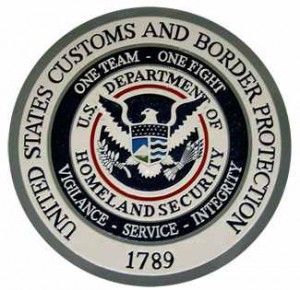South Texas U.S. Customs and Border Protection Agriculture Specialists Intercept Significant Pests
Written by admin, Nov 24, 2014, Comments Off
Courtesy U.S. Customs and Border Protection,
SOUTH TEXAS – U.S. Customs and Border Protection (CBP) agriculture specialists at two South Texas ports of entry recently intercepted a first-in-the-nation pest and a first-time port interception of a particular pest within commercial produce shipments.
“Our nation’s food supply is constantly at risk from pests not known to occur in the U.S. These two significant pest interceptions by our agriculture specialists in Pharr and Rio Grande City exemplify CBP’s continued commitment to safeguarding American agriculture,” said Director, Field Operations David P. Higgerson, Laredo Field Office.
 The more recent interception occurred on November 10, 2014 at the Rio Grande City International Bridge. A CBP agriculture specialist conducting an intensive examination on a commercial shipment of ginger discovered a pest. After submittal of the pest for identification at a U.S. Department of Agriculture lab in Washington, a USDA entomologist confirmed that the pest is Myodocha unispinosa Stal, a pest not known to occur in the U.S. This is a first-time interception of this pest at Rio Grande City Port of Entry. Given the pest finding, the shipment was refused entry and re-exported back to Mexico.
The more recent interception occurred on November 10, 2014 at the Rio Grande City International Bridge. A CBP agriculture specialist conducting an intensive examination on a commercial shipment of ginger discovered a pest. After submittal of the pest for identification at a U.S. Department of Agriculture lab in Washington, a USDA entomologist confirmed that the pest is Myodocha unispinosa Stal, a pest not known to occur in the U.S. This is a first-time interception of this pest at Rio Grande City Port of Entry. Given the pest finding, the shipment was refused entry and re-exported back to Mexico.
The other interception occurred on November 4, 2014 at the Pharr-Reynosa International Bridge. A CBP agriculture specialist examining a commercial shipment of broccoli encountered a live pest on the trailer floor. After an initial identification at the Los Indios Plant Inspection Station, a USDA entomologist in Washington positively identified the pest as Bulia schausi Richards. This is a first-time interception of this pest in the U.S. Bulia schausi is a moth of the Noctuidae family found in Northwestern Mexico. It is an invasive species not known to exist in the U.S. that poses a threat to American agriculture. Due to the pest discovery, CBP refused entry and the broccoli shipment was re-exported back to Mexico.



